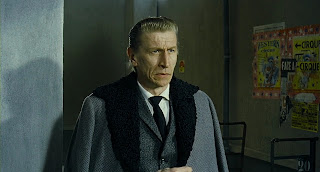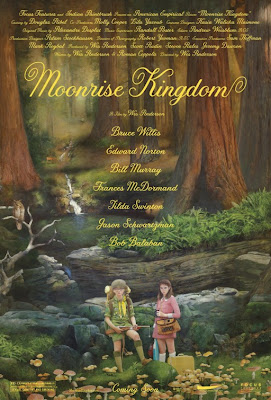Director: Gary Ross
Cast: Jennifer Lawrence, Josh Hutcherson, Liam Hemsworth
Woody Harrelson, Elizabeth Banks, Willow Shields, Wes Bentley
Paula Malcomson, Toby Jones, Lenny Kravitz, Donald Sutherland
Stanley Tucci, Amandla Stenberg, Alexander Ludwig, Jack Quaid
One of the most disturbing realizations upon watching
The Hunger Games is that the post-apocalyptic story revolves around a reality television show; meaning that yes, reality television programs are the entertainment equivalent of cockroaches and might survive much nobler art forms after the end of times. The show in this case is a twisted version of the Olympics titled "The Hunger Games", held every year by members of the Capitol to remember their violent history. During the games, twenty four men and women - between the ages of 12 to 18 - represent their districts and battle each other to death, until only one victor remains.
The movie concentrates on the 74th edition of the games and mainly follows Katniss Everdeen (Lawrence) the female tribute from the impoverished District 12. Katniss is an expert hunter who has been providing for her family since the death of her father in a mining accident (event which we see exclusively through dialogue-free flashbacks), it's her deep love for her little sister Prim (Shields) that drives her to offer herself as volunteer after Prim is chosen.
Katniss, along with male tribute Peeta (Hutcherson) and their mentor Haymitch (Harrelson), travel to the Capitol guided by the extravagant Effie Trinket (Banks), where they experience for the first time the riches and luxuries they would've never dreamt of having in their districts. But this land is no Oz and serves them merely as the lavish waiting room where they await their eventual participation in the games.
Eventually they are thrown onto a field populated with deathly traps, genetically engineered critters and more terrifying: other human beings whose only purpose is to survive.
Whatever the movie needs to say about the sad reality of entertainment in our times, in which suffering and schadenfreude seem to be the one thing audiences need to be happy, isn't as disturbing as the way in which it's told.
The Hunger Games, based on the popular book by Suzanne Collins, seems to be a critique of dumbed down entertainment but going beyond the genre limitations, it actually forces us to look beyond what we think of as "entertainment".
More than addressing the ridiculousness of reality television, which if nothing else is a disturbingly precise metaphor for "efficient capitalism" (minimum effort maximizing profit), we also come to terms with how journalism has become a sort of Roman sport in its own way.
Watching the film you are more reminded of CNN than you are of
Survivor, especially when it's suggested that the games are broadcast twenty four hours a day. The film doesn't try to get to the source of this blood thirst, instead it focuses on one of the stars.
As played by Lawrence, Katniss is a young woman who knows what she wants and how to get it. The hunger in her eyes goes beyond putting a piece of bread in her mouth, it speaks of revenge, hatred and manipulation. Katniss isn't completely likable and that's what makes her so fascinating to watch.
Few actresses are able to empty themselves completely in the effortless way Lawrence does. It seems to take her absolutely nothing to "play" someone. In the movie, Katniss is forced to pretend she has a crush on Peeta, if only to get sponsors who might help her win.
Watching the way in which the lovestruck young man looks at Katniss, we aren't only convinced that she is playing the part to perfection, we also begin to question the nature of emotions. Several movies fail because they think of love as something pure and divine,
The Hunger Games succeeds because it understands that love after all might be nothing more than a human creation.
Directed with utmost precision by Gary Ross, the film takes on the harsh task of transforming a novel told in the first person, into a movie that deals with the machinations of a larger social scheme. Ross understands that even this kind of brutality must be entertaining and crafts a movie that feels profound without dangling on extreme snobbery. The film becomes especially effective when we realize it's a direct representation of the story being told.
Novels tell us, movies show us and
The Hunger Games then quite literally becomes "The Hunger Games", as we watch actors pretend to be young people who kill each other. Unlike the gamemakers in his movie, Ross is a merciful director and he spares us the need to watch extreme violence. He also denies us the pleasure of getting to know the characters better, which could come off as cold hearted but in all honesty, when's the last time you "knew" the Olympic games competitors? This lack of intimacy makes the film feel even more realistic, its points the more prescient and appropriate. It doesn't avoid the moral dilemmas, it simply establishes that it would never be able to solve them. Does your favorite Olympic sporting event change when one of the teams or competitors comes from a poor country? Perhaps in the future our desire to entertain ourselves will be directly connected to our selfish sense of survival. The movie reminds us that even then, once it's over, we can simply look away from the screen and move on with our lives.













































